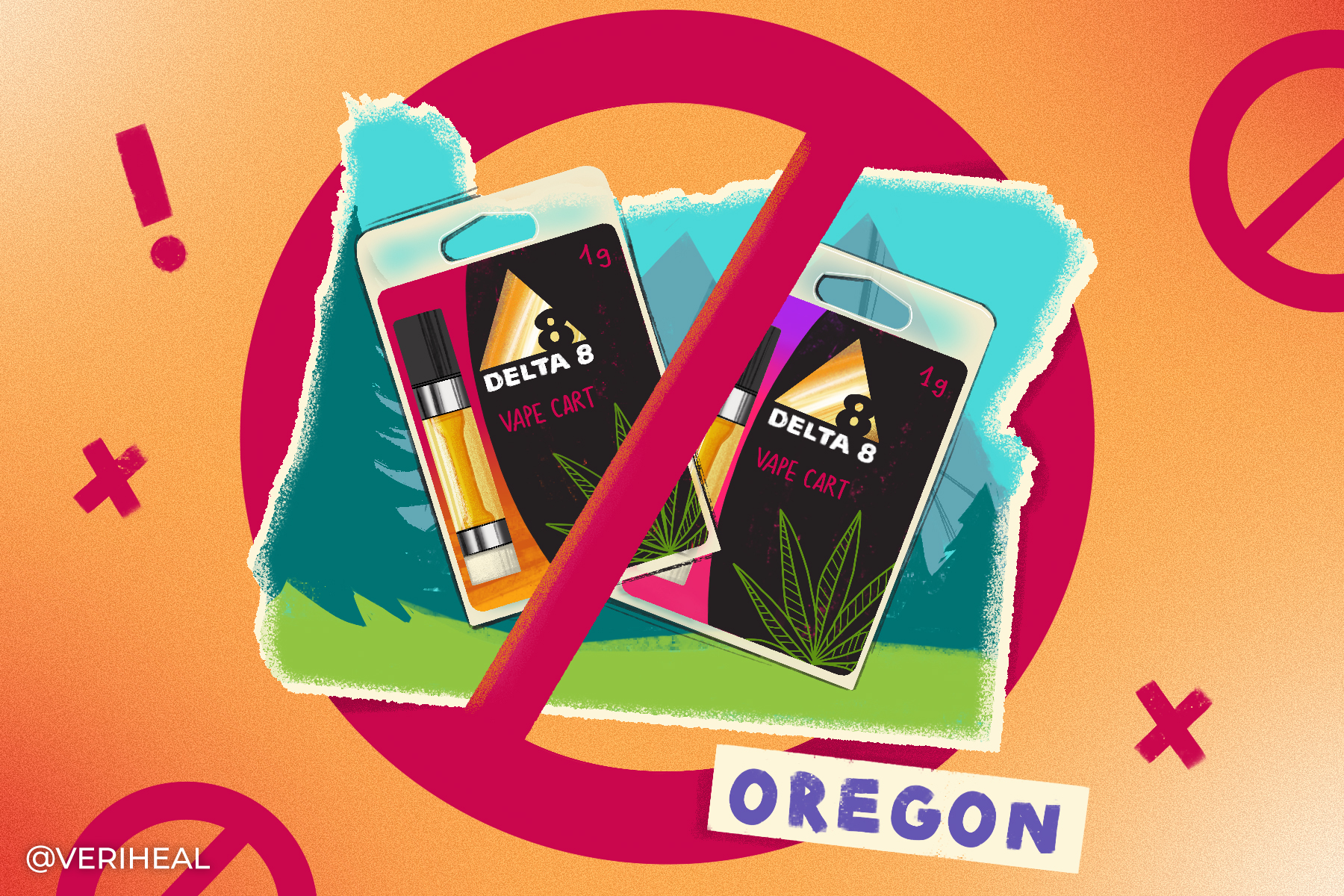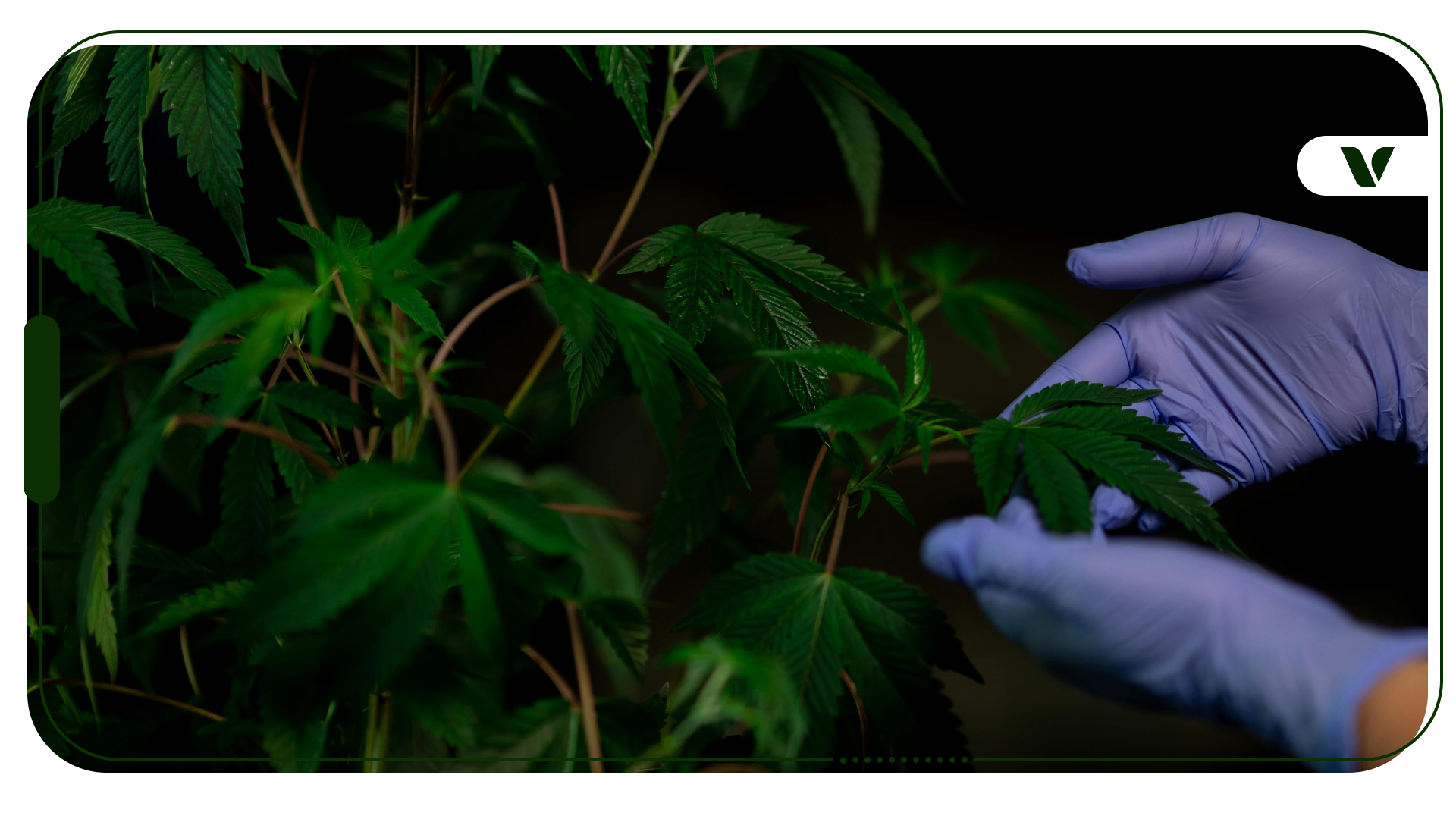It’s been two months since synthetic cannabinoids were outlawed in Oregon, where legal cannabis sales totaled almost $1.2 billion in 2021. The rule change took place on July 1, making Oregon the first-ever U.S. state to outlaw sales of synthetic cannabis products. Included in the list of forbidden products are lab-grown cannabinoids.
It’s bad news for producers and retailers who jumped on the delta-8 THC bandwagon since this psychoactive substance is included in the list of banned synthetic cannabinoids in Oregon. Moving forward, people who descend upon the state’s licensed cannabis stores will not be able to find synthetic or semi-synthetic cannabis products (e.g., delta-8 THC, HHC) even if they don’t contain delta-9 THC (read: regular old federally banned THC).
Many people consume these products with no problems, but this may not always be the case. According to the Oregon Liquor and Cannabis Commission (OLCC), officials are worried about the fact that these products sidestep normal regulatory standards. Because of this, synthetic cannabinoids in Oregon pose a risk to consumer health and safety.
“We have testing for pesticides. We have testing for residual solvents from the extraction process,” said the OLCC’s hemp and processing compliance specialist, Steven Crowley. “We don’t have any testing for any of the whole universe of chemical reagents that you could use to synthetically turn one cannabinoid into something else, or for any of the byproducts of that reaction.”
Although the U.S. federal government has already banned (or at least imposed a temporary ban on) various synthetic cannabinoids like K2 and spice, hundreds of synthetic cannabinoids are still unregulated at the state level; thus explaining the legal loophole that these products have fallen into.
It should be noted that spice and products like delta-8 and HHC differ drastically; the former is completely man-made and consequently quite dangerous, while the latter examples occur naturally but are mass-produced using a cannabinoid conversion process. Still, they should be regulated like other cannabis products to ensure consumer safety.
Overflow of CBD Prompts Scientists to Lab-Engineer Cannabinoids
The chemical compounds contained in cannabis, aka cannabinoids, are produced from what researchers like to call the “mother” of all cannabinoids: cannabigerol (CBG). Initially discovered in 1964, CBG transforms into other well-known cannabinoids like CBD, CBN, THC, and THCV once it is exposed to heat, light, and other environmental factors.
What this means is that the most well-known cannabinoids THC and CBD cannot naturally exist without the presence of CBG in their raw form. However, scientists have found a way to lab-engineer cannabinoids as a way of amplifying potency. When manufactured synthetically, cannabinoids are categorized as “new psychoactive substances” (NPS).
Why You Should Get Your Medical Marijuana Card
Veriheal has satisfied millions of patients nationwide by giving them access to these benefits
- Larger purchase limits
- Peace of mind
- Enhanced legal protection
- Access to higher potency strains
- Save up to 25% on cannabis purchases
- Skip the line at the dispensary
Currently, even though they are mind-altering substances that may produce similar effects to all-natural cannabis, synthetic cannabinoids are unregulated. Nonetheless, this does not change the fact that NPS products have become widely available on the legal market.
“The people who had CBD on hand were looking for other ways that they could market it. People started working on different products that they could convert CBD into. This is where you get the delta-8 THC products,” said Crowley, who noted that lab-made cannabinoids have made their way into legal avenues due to excess CBD flooding the market.
Abiding by the FDA’s regulatory process is essential if synthetic cannabis sellers are to continue providing their customers with these types of products. The ban on synthetic cannabinoids in Oregon has been met with criticism by many retailers, one of which was Wyld, which filed a petition to rescind the ban.
From July of next year, synthetic cannabis products in Oregon that have been approved for legal sale will only be made available at OLCC-accredited stores.
How Will Cannabis Consumers Be Affected by Oregon’s Synthetic Cannabinoid Ban?
Increased health and safety are one of the main appeals of Oregon’s ban on synthetic cannabinoids since consumers will benefit from greater reassurance that the products they purchase are naturally sourced. According to the Centers for Disease Control and Prevention (CDC), synthetic cannabinoids can potentially cause agitation, confusion, vomiting, and rapid heart rate.
With research indicating that consumers may become dependent on synthetic cannabinoids (particularly if they are used regularly), the ban will effectively safeguard people from enduring psychological and physical withdrawals when they stop using such substances.
Numerous factors tend to influence whether or not someone becomes dependent on synthetic cannabinoids, such as the amount of product being consumed and how long it has been consumed. Physical withdrawals range from appetite and weight loss to mood swings, sleeping problems, and diarrhea.
The absence of synthetic cannabinoids in Oregon’s legal cannabis market is unlikely to put a dent in sales revenue. Statista estimates that cannabis sales will soar to highs of $1.04 billion by the year 2025.
Author, Share & Comments








